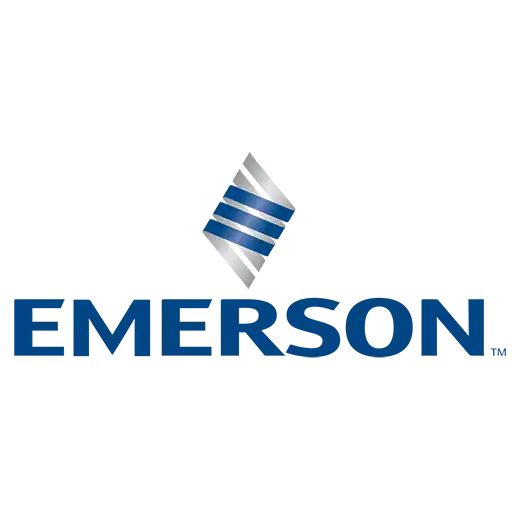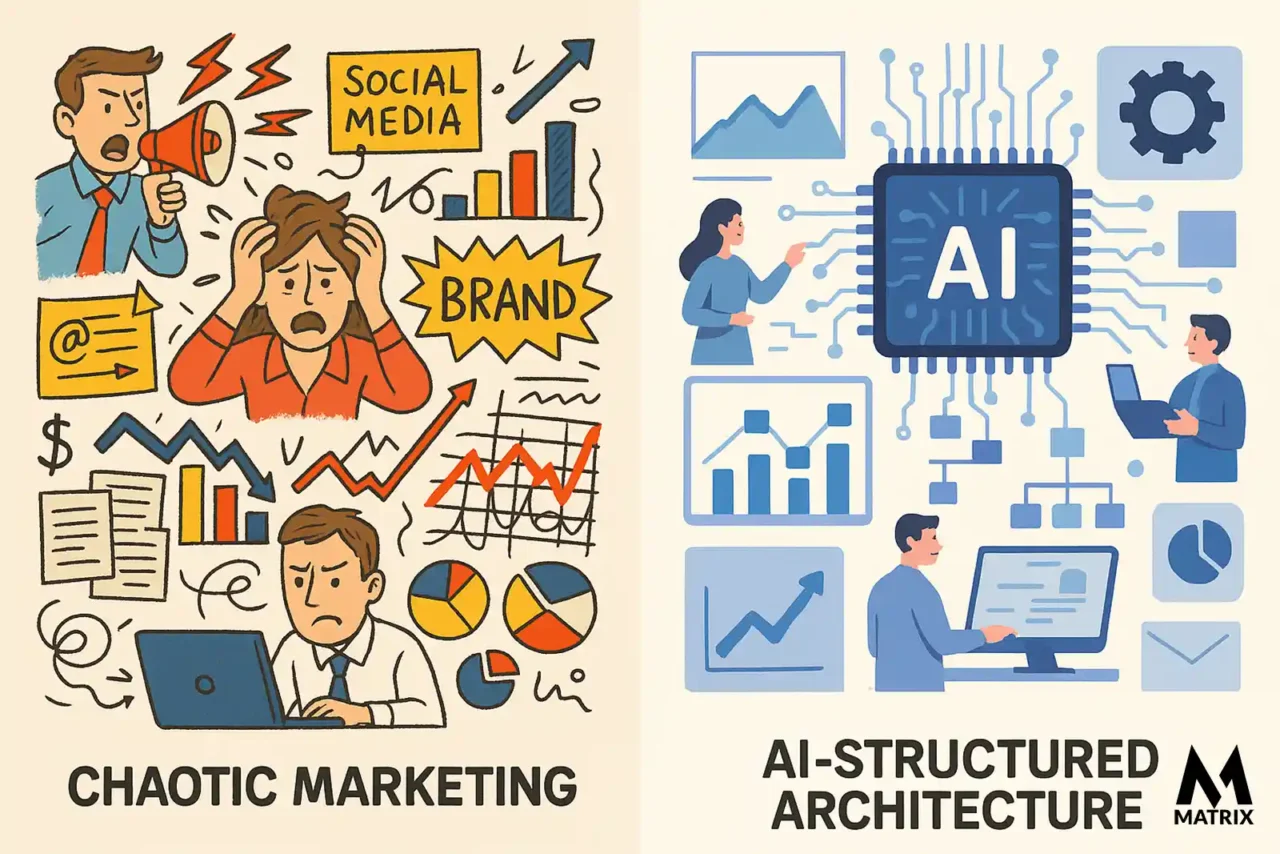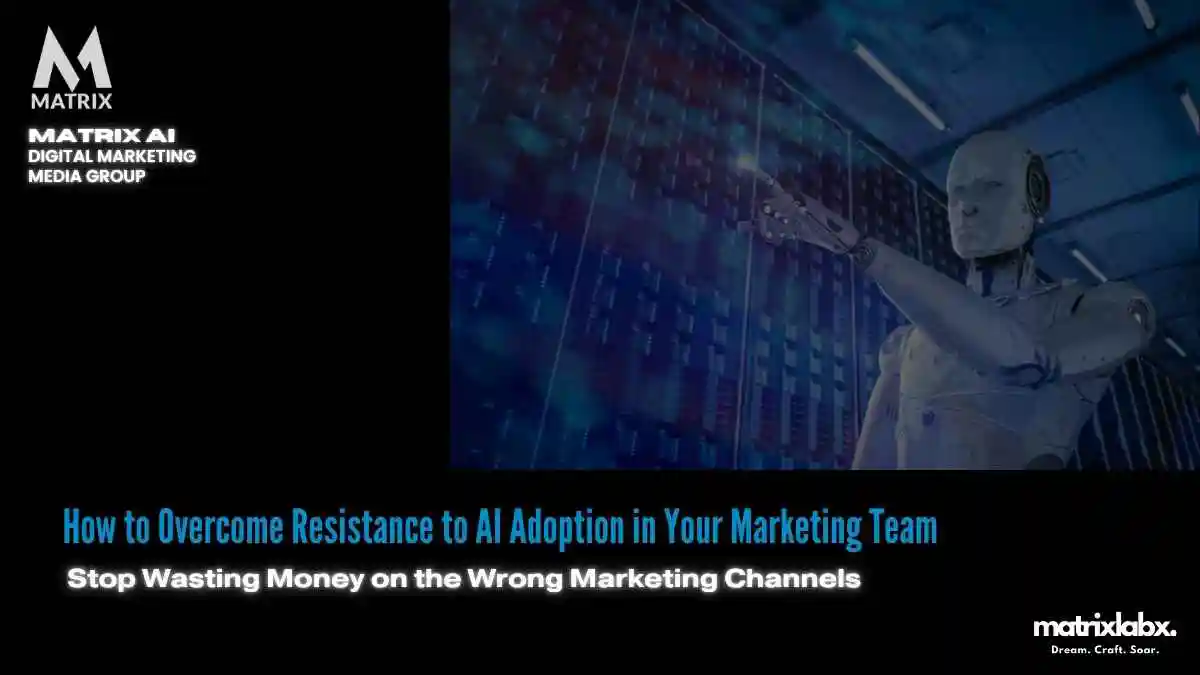How to Overcome Resistance to AI Adoption in Your Marketing Team
Learn How to Overcome Resistance to AI Adoption in Your Marketing Team.
Introduction
Artificial Intelligence (AI) transforms the marketing landscape, enabling teams to analyze data faster, personalize campaigns more effectively, and automate time-consuming tasks.
Yet, despite its potential, many marketing teams remain hesitant to embrace AI technologies fully.
This resistance can stem from fear of the unknown, concerns about job displacement, or simply a lack of understanding about how AI can support, not replace, human creativity.
For marketing managers, the challenge is twofold: to recognize AI’s value and lead their teams through a successful adoption process. This article will help you understand why resistance occurs and provide actionable strategies to Overcome Resistance to AI Adoption within your marketing team.
The Reality of Poor AI Adoption in Marketing
While AI is rapidly gaining ground in many industries, marketing departments often lag in implementation. Here are a few key statistics that highlight the gap:
- According to a 2023 Gartner survey, only 29% of marketing teams have successfully integrated AI tools into their daily operations.
- A McKinsey report found that 43% of marketing professionals cite a lack of training and understanding as the primary barrier to AI adoption.
- Nearly 60% of marketers express concern that AI will make their roles obsolete, leading to passive or active resistance to its use.
These numbers underscore the need for marketing leaders to address concerns and build a culture that proactively embraces innovation.
AI Integration in Marketing
Nearly 60% of marketers now rely on AI to streamline processes, generate content, and analyze data, a trend expected to grow in 2025, underscoring the role of AI-driven DMaaS platforms in modern marketing strategies. See pricing.
1. Educate and Demystify AI
The first step to overcoming resistance to AI Adoption is education. Many marketers resist AI because they don’t fully understand how it works.
Offer workshops, lunch-and-learns, or invite guest speakers to explain AI concepts in simple, relatable terms. Focus on practical applications such as:
- Automating email segmentation
- Predicting customer behavior
- Enhancing content personalization
Demonstrating real-world use cases helps demystify AI and shows how it can make work more efficient, not redundant.
2. Involve the Team in the Process
Resistance often arises when people feel change is being imposed upon them. Instead, involve your team in the AI adoption process from the beginning.
Solicit their input when evaluating tools, and pilot new technologies with small groups before a full rollout.
Encourage feedback and make adjustments based on their experiences. When team members feel heard and involved, they are more likely to support and champion the transition.
3. Address Job Security Concerns
One of the most common fears is that AI will replace human jobs.
Be transparent about your intentions: AI is a tool to enhance human capabilities, not eliminate them.
Emphasize that AI can handle repetitive tasks, freeing your team to focus on strategic and creative work.
Consider offering reskilling or upskilling opportunities to help your team stay relevant in an AI-enhanced workplace. Employees who see a path forward are less likely to resist change.
4. Highlight Quick Wins
To build momentum, start with AI tools that deliver quick, tangible results.
Whether it’s an AI-powered content generator that speeds up blog writing or a predictive analytics tool that improves campaign targeting, early successes can help convert skeptics into advocates.
Celebrate these wins publicly within your team to reinforce the value of AI and build confidence in its capabilities.
5. Choose the Right Tools and Vendors
Not all AI tools are created equal. Select platforms that are user-friendly and align with your team’s existing workflows.
Look for vendors with strong customer support, training resources, and integration capabilities.
The smoother the onboarding process, the less friction you’ll face from your team.
Successfully integrating AI into your marketing strategy requires more than choosing the right tools—it requires a cultural shift.
By educating your team, involving them in the process, addressing their concerns, and celebrating small victories, you can effectively Overcome Resistance to AI Adoption and unlock the full potential of AI-driven marketing.
As a marketing manager, your leadership is critical.
Guide your team through the change with empathy, clarity, and a vision for the future—and you’ll position your organization for long-term success in the age of intelligent marketing.




How to Overcome Resistance to AI Adoption in Your Marketing Team
Artificial intelligence (AI) in marketing can significantly enhance productivity, customer targeting, and campaign performance.
However, team members often resist AI integration due to concerns about job security, lack of understanding, or fear of change.
The following step-by-step guide outlines overcoming resistance and successfully integrating AI into your marketing team.
Step 1: Educate Your Team About AI
Begin by addressing the knowledge gap. Resistance often stems from fear of the unknown.
- Host workshops or webinars to explain what AI is and how it applies to marketing.
- Share real-world case studies that demonstrate AI’s benefits in similar organizations.
- Encourage open discussions where team members can ask questions and express concerns.
Tip: Use simple language and relatable examples to demystify AI concepts.
Step 2: Involve the Team in the Process
Inclusion fosters ownership and reduces resistance.
- Invite team members to participate in selecting AI tools.
- Create cross-functional committees to evaluate use cases.
- Encourage feedback on how AI could support current workflows.
Best Practice: Engage early adopters and influencers within the team to champion the initiative.
Step 3: Start Small with Pilot Projects
Avoid overwhelming the team by introducing AI gradually.
- Identify a low-risk, high-impact area (e.g., email personalization or social media scheduling).
- Implement a pilot project with clear objectives and KPIs.
- Monitor results and iterate based on team feedback.
Tip: Choose a pilot that delivers quick wins to build confidence and demonstrate value.
Step 4: Provide Training and Support
Equip your team with the skills and resources needed to succeed.
- Offer hands-on training sessions tailored to specific roles.
- Provide access to tutorials, documentation, and vendor support.
- Assign mentors or AI specialists to assist during the transition.
Best Practice: Make learning continuous by integrating AI education into ongoing professional development.
Step 5: Communicate the Benefits Clearly
Help the team understand how AI enhances—not replaces—their work.
- Emphasize how AI automates repetitive tasks, freeing time for strategic and creative efforts.
- Highlight improvements in campaign efficiency, customer insights, and ROI.
- Share success stories and data from the pilot phase.
Tip: Align AI benefits with individual and team goals to make the value more personal and relevant.
Step 6: Address Job Security Concerns
One of the biggest fears is job displacement. Tackle this head-on.
- Reassure your team that AI is a tool to augment human capabilities, not replace them.
- Show how AI can create new roles and career paths within the marketing department.
- Promote a culture of adaptability and lifelong learning.
Best Practice: Develop a change management strategy with regular check-ins and support.
Step 7: Monitor Progress and Celebrate Success
Track adoption metrics and recognize achievements.
- Use KPIs to measure the impact of AI on marketing performance.
- Gather team feedback to identify areas for improvement.
- Celebrate milestones and acknowledge individual contributions.
Tip: Publicly recognizing success builds momentum and encourages broader adoption.
By following these steps and fostering a culture of transparency, learning, and collaboration, you can successfully overcome resistance and empower your marketing team to embrace AI as a valuable ally in achieving strategic goals.
Affordable SEO Solutions That Drive Real Results
Matrix Marketing Group Delivers Customized SEO Strategies with Transparent Pricing for Maximum ROI. See SEO Services.
How to Overcome Resistance to AI Adoption in Your Marketing Team

As artificial intelligence (AI) continues revolutionizing the marketing landscape, many teams face resistance when adopting these new technologies.
This resistance can stem from various factors, including fear of job displacement, lack of understanding, or skepticism about the effectiveness of AI tools.
Below are detailed troubleshooting tips to help you navigate and overcome these challenges within your marketing team.
Troubleshooting Tips
1. Educate and Inform
- Workshops and Training: Organize workshops that explain AI concepts and demonstrate how they can enhance marketing efforts. Use real-world case studies to illustrate successful AI applications.
- Resources and Materials: Provide access to articles, videos, and courses that cover AI in marketing. This can help demystify the technology and clarify its benefits.
2. Address Concerns Directly
- Open Dialogue: Create a safe space for team members to voice their concerns about AI adoption. Listen actively and address misconceptions about job security and AI capabilities.
- Highlight Human-AI Collaboration: Emphasize that AI is designed to augment human capabilities, not replace them. Discuss how AI can take over repetitive tasks, allowing marketers to focus on strategic and creative work.
3. Involve the Team in the Process
- Collaborative Decision-Making: Involve team members in selecting AI tools and strategies. This inclusion fosters a sense of ownership and reduces resistance.
- Pilot Programs: Implement pilot projects that allow team members to experiment with AI tools in a low-stakes environment. Gather feedback and make adjustments based on their experiences.
4. Showcase Quick Wins
- Demonstrate Immediate Benefits: Identify and implement AI solutions that can deliver quick results, such as chatbots for customer service or automated email marketing campaigns. Share these successes with the team to build confidence in AI.
- Metrics and Reporting: Use data to showcase improvements in efficiency, engagement, or ROI resulting from AI adoption. Visualizing success can help shift perceptions positively.
5. Foster a Culture of Innovation
- Encourage Experimentation: Create a culture that values experimentation and learning. Allow team members to test new ideas and tools without fear of failure.
- Recognize and Reward: Acknowledge team members who embrace AI and contribute to its successful integration. Celebrating these efforts can motivate others to follow suit.
6. Provide Ongoing Support
- Dedicated Resources: Assign a team or individual to support the transition to AI, answering questions and providing assistance as needed.
- Continuous Learning: Encourage ongoing education and training to keep the team updated on the latest AI trends and tools in marketing.
Conclusion
Overcoming resistance to AI adoption in your marketing team requires a strategic approach that addresses fears, fosters understanding, and promotes collaboration.
By educating your team, involving them in the decision-making process, showcasing quick wins, and creating a culture of innovation, you can facilitate a smoother transition to AI technologies.
The benefits of AI in marketing are significant, and embracing these tools can lead to improved efficiency, enhanced customer experiences, and ultimately, better business outcomes.
How Matrix Marketing Group Can Help
At Matrix Marketing Group, we understand the challenges of adopting new technologies, including AI. Our team of experts is dedicated to guiding organizations through the complexities of AI integration in marketing. We offer:
- Tailored Workshops: Customized training sessions designed to educate your team about AI and its applications in marketing.
- Strategic Consulting: Expert advice on selecting the right AI tools and strategies that align with your business goals.
- Pilot Program Implementation: Assistance in launching pilot programs that allow your team to test AI solutions with guidance and support.
- Ongoing Support: Continuous resources and assistance to ensure your team is comfortable and proficient in using AI technologies.
Let Matrix Marketing Group be your partner in overcoming resistance to AI adoption and unlocking the full potential of your marketing team.
Contact us today to learn more about how we can help you navigate this exciting transition.
Your Blueprint for SEO Success in 2025
Whether you’re a business owner, marketer, or seasoned SEO professional, this guide is tailored to give you a competitive edge in the evolving digital landscape. Get SEO Pricing.


